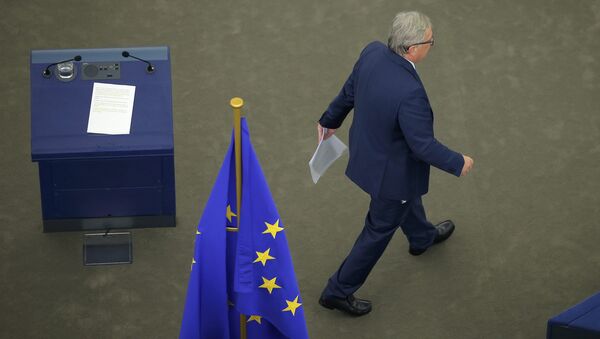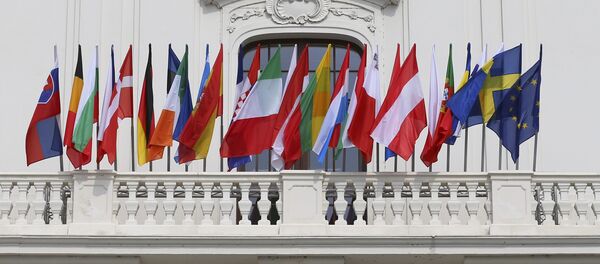"It wasn't to be expected that this summit would have led to any sort of a great deal that would be able to solve all the upcoming problems in the future," Thiele told Sputnik. "What actually has been reached is the agreement that we first of all need a new agreement on where to go with the European integration after Brexit," the expert added.
On June 23, 52 percent of UK voters chose to leave the EU in a referendum on the country's membership in the bloc. The UK's Brexit decision means the EU is about to lose its most capable military member state and signifies the failure of the European system as a whole.
"Brexit was a clear break in the European integration process. And it sort of caught most of other European Union's member states more or less by surprise. Everybody expected things would go well, but they didn't. So what we see now is other member states trying to find a solution, how to cope with this new situation," Thiele said.
The growing frustration over the EU's perceived inability to get a handle on the migrant crisis is widely believed to be the most relevant topic for the block. However, the expert also named such issues as socio-economic problems in Southern European states, the euro crisis, international crises and climate change as the main problems which the Union now has to resolve.
"And all these great challenges for the European Union [come] at the time when we see that it may be falling apart from the inside," the expert stated.
The main problem, as the expert noted, is that European countries are currently far from unity as many of them prefer to pursue their own interests, rather than those of the bloc.
"National interests are far more dominant than we expected them to be in better times. Practically every nation, every member state […] has now started to express its own national interests in a far more intensive way than before. And therefore holding the club together is something that will be on the main agenda of the remaining 27 EU member states in the coming future," Thiele said.



